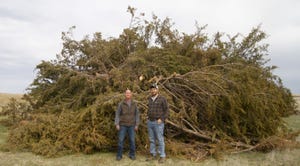USDA crop progress: Corn planting drags along
Planting pace is only around half of the five-year average.
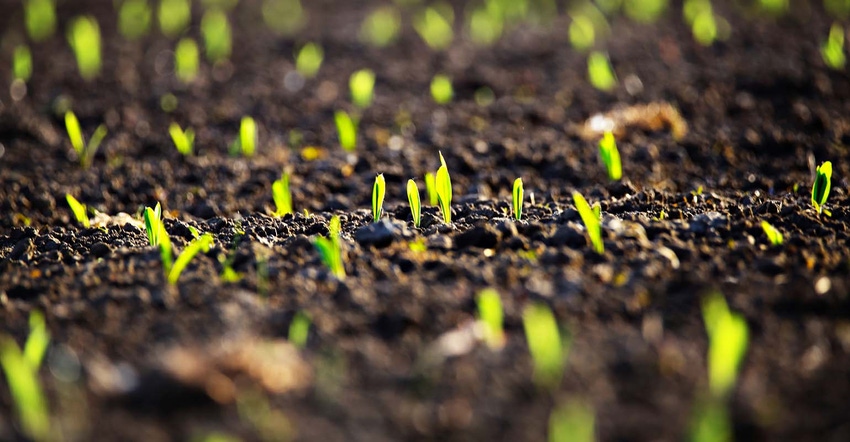
Corn planting remains sluggish amid soggy spring weather, reaching just 23% completion as of May 5, per the latest USDA Crop Progress report.
Farmers did make some forward progress this past week, moving up from the prior week’s tally of 15%. However, planting progress slightly behind analyst expectations of 25%, moderately behind 2018’s pace of 36% and just half of the five-year average of 46%.
“Planting progress remains slow, with the next two weeks crucial for corn seeding,” according to Farm Futures senior grain market analyst Bryce Knorr. “Production potential begins to fall if 85% is not planted in the report out May 20.”
Seven of the top 18 production states have only made single digit progress, in fact, including Indiana (3%), Michigan (3%), Minnesota (6%), North Dakota (3%), Ohio (2%), South Dakota (N/A) and Wisconsin (7%). Only three states – North Carolina (73%), Tennessee (65%) and Texas (70%) – have crossed the halfway mark so far.
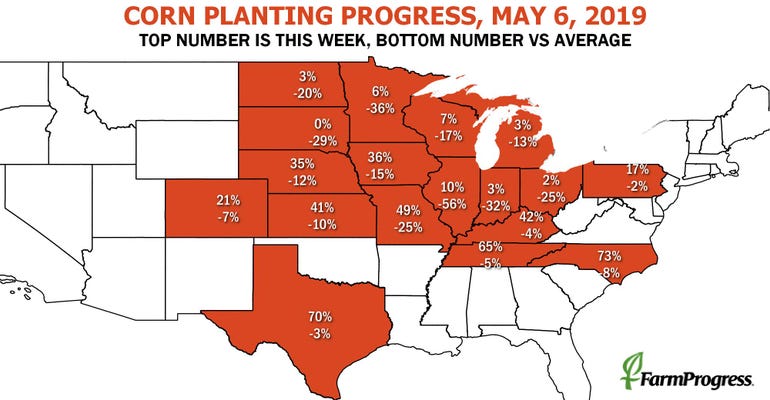
Corn emergence has reached 6%, which doubled its tally of 3% from the prior week but remains significantly behind the five-year average of 13%.
Soybean planting progress reached 6% last week – also falling significantly behind the five-year average of 14%. Analysts expected that number to reach 8% after progress of 3% the prior week. Southern states Louisiana (46%) and Mississippi (27%) continue to lead the charge for now.
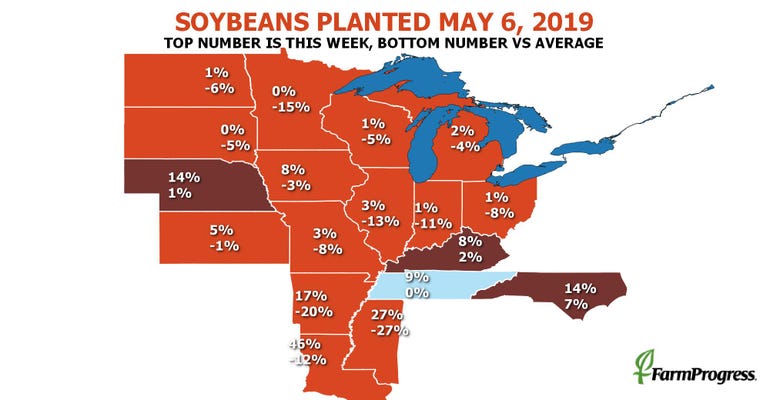
Spring wheat planting reached 22% last week, up from 13% the prior week and mostly in line with analyst estimates of 24%. Progress remains moderately behind the prior year’s pace of 27% and significantly behind the five-year average of 49%.
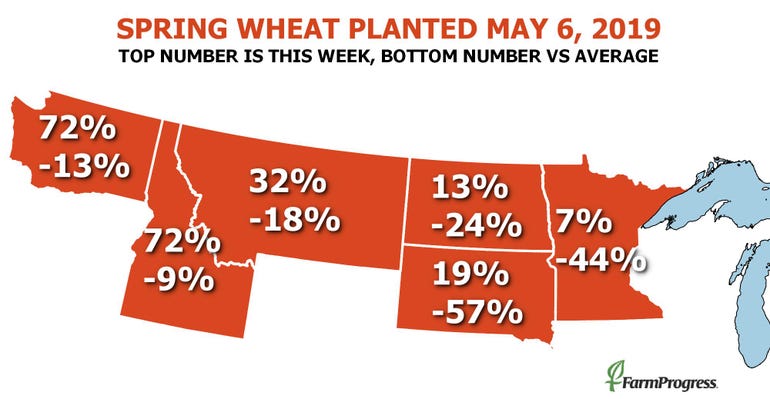
The 2018/19 winter wheat crop quality took a dip, meantime. Although the total percent of the crop remains 64% in good-to-excellent condition, that split moved from 15% excellent and 49% good the prior week down to 12% excellent and 52% good. Another 28% of the crop is rated fair, with the remaining 8% rated poor or very poor (unchanged from the prior week).
Even so, yield potential remains mostly stable for now, Knorr says.
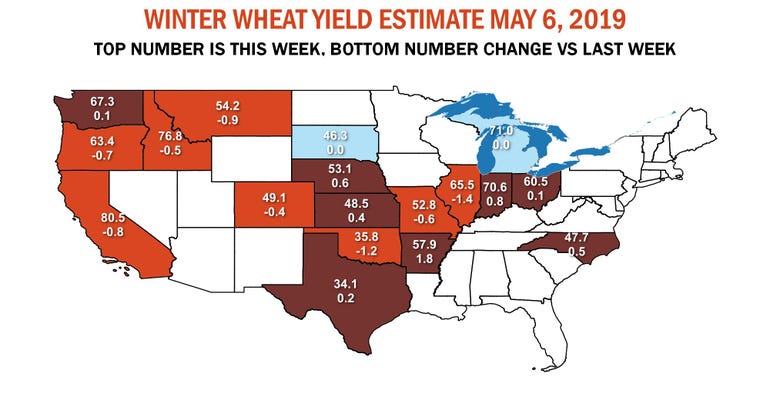
“Winter wheat ratings dropped slightly this week, but the forecast based on nationwide conditions is still around 48.5 bushels per acre, in line with our estimates made from Vegetation Health Index maps,” he says.
Other crops of note in the latest report include:
Cotton – 18% planted (up from 11% the prior week)
Sorghum – 22% planted (up from 20% the prior week)
Rice – 48% planted (up from 38% the prior week)
Sugarbeets – 31% planted (up from 25% the prior week)
Oats – 50% planted (up from 43% the prior week)
About the Author(s)
You May Also Like


.png?width=300&auto=webp&quality=80&disable=upscale)
